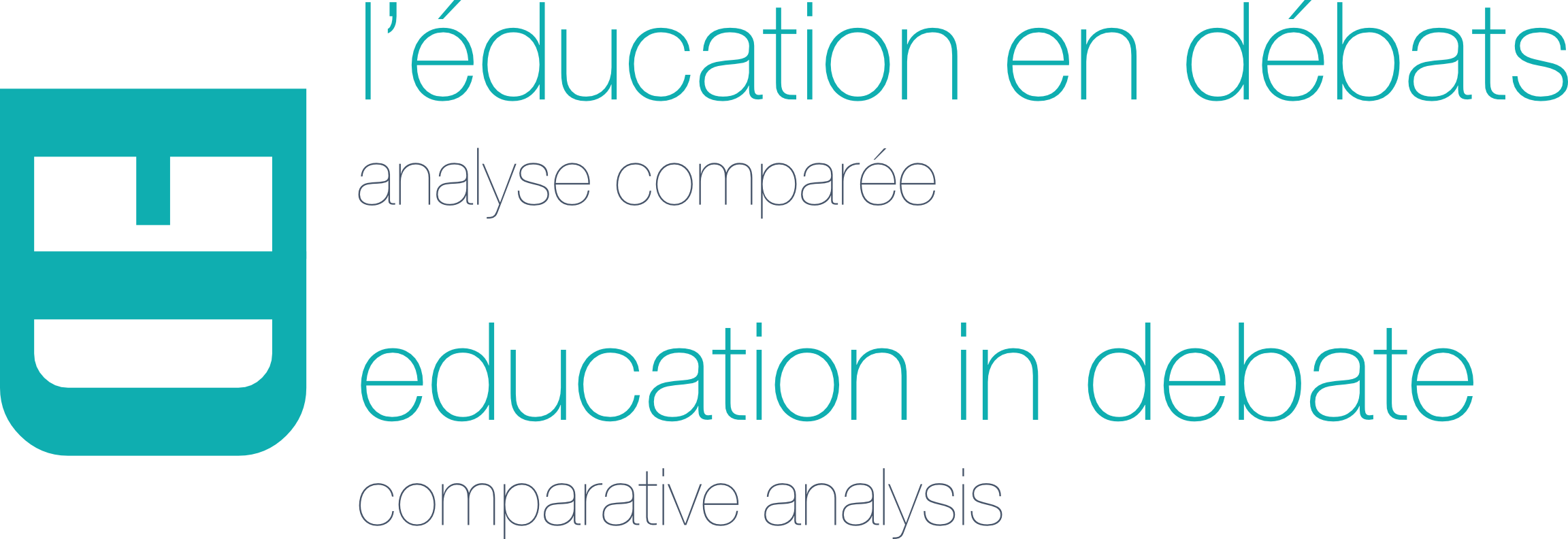Langues, constructivismes et interculturalité. Comment participer à l’harmonisation des sociétés par l’apprentissage du français,
Abstract
The title refers to the perspective that teaching/learning second and foreign languages is gradually taking in contemporary theory. This is particularly true for French as a second/foreign language learning/teaching where, beyond the importance of a first-level of functional language acquisition, we are increasingly conscious that languages are an intercultural connection and that their knowledge brings an ecological equilibrium and harmony between languages. This movement, previously labelled language as culture, is evolving in a completely different direction today; towards language learning as part of intercultural training and solidarity, in accord with other planetary social movements (ecology, constructivism, etc).
From this point of view, language teaching methodologies and the curricula are of prime importance if they seek to uncover competition and focus on actions and discourses of solidarity.
This article is theoretical, by painting a picture of contemporary ideologies (those of solidarity and those of competition) and practical, by showing how these ideologies influence in the classroom.
Moreover, this interculturality of solidarity has to be reflected in language policies that frame language teaching and learning experiences.
References
Ariza, E. N. (2002). Resurrecting “Old” Language Learning Methods to Reduce Anxiety for New Language Learners: Community Language Learning to the Rescue. Bilingual Research Journal, 26: 3, 717-728.
Ayton-Shenker, D. (1995). Droits de l’homme et diversité culturelle http://www.un.org.french/dpi1627f.htm
Birke, L. & Hubbard, R. (1995). Reinventing Biology. Respect for Life and the Creation of Knowledge. Indiana: Indiana University Press.
Blanke, H. (1996). Marcuse’s Discourse on Nature, Psyche, and Culture. In D. Macauley (éd.). Minding Nature. The Philosophers of Ecology. New York: The Guilford Press.
Bourdieu, P. (1998). La Domination masculine. Le Monde diplomatique). http://www.homme- moderne.org/societe/socio/bourdieu/Bdominma.html
Curran, C. A., & Tirone, P. (1984). The counseling-learning approach to community language learning. Proceedings of the 13th Annual University of Wisconsin-Milwaukee Linguistics Symposium. Milwaukee, WI: Department of Linguistics, University of Wisconsin.
Gattegno, C. (1983). The Silent Way. In J. Oller & R. Amata (Eds.) Methods that Work. Rowley, Massachusetts: Newbury House.
Gould, S. J. (1993). Eight little piggies: reflections in natural history. New York: Norton.
Hatley, H. (Sd.). Compare, contrast, and evaluate the main humanistic approaches to second language teaching. http://www.geocities.com/helenflatley/Comparehumanisticend.doc
Hawkes, D. (1996). Ideology. Routledge: London.
Hoven, D. (1999). A Model for Listening and Viewing Comprehension in Multimedia Environments. Language Learning and Teaching, 3: 1, 88-103, http://llt.msu.edu/vol3num1/hoven/
Kuhn, T. (1970). The Structure of Scientific Revolutions (2nd ed). Chicago: University of Chicago Press.
Lozanov, G. & Gateva, E. (1988). The Foreign Language Teacher's Suggestopedic Manual. New York: Gordon and Breach Science Publishers.
LeBouffant, M. (2001). La communauté des professeurs de français: mondialisation et humanisme. Le français dans le monde, no 315, mai-juin http://www.fdlm.org/fle/article/315/lebouffant.html
Macauley, D. (1996). Minding Nature. The Philosophers of Ecology. New York: The Guilford Press.
Martel, A. (2003, sous presse). Nous n’avons jamais été urbains mais nous le sommes. Des solidarités pour mieux-vivre par une francophonie canadienne interculturelle et mondialisée. Francophonie d’Amérique. Ottawa: Presses de l’Université d’Ottawa.
Martel, A. (2002a). De/constructing with global paradigms. On governance, democracy and policies for language communities. Communication au Congrès mondial sur la politique linguistique, 16-20 avril, Barcelone, http://www.linguapax.org/congres/taller/taller4/Martel.html.
Martel, A. (2002b). Politique linguistique, valeurs sociales et sciences. Réflexions dans le cadre de la politique linguistique québécoise. International Journal of the Sociology of Language 158, 183-209.
Martel, A. (2000a). L’apprentissage des langues par Internet. Transition par les technologies de communication. Intercompreensão-Revista de Didáctica das Línguas nº 8.Septembre 2000. Santarém: Escola Superior de Educação
Martel, A. (2000b). Constructing Learning with Technologies. Second/Foreing Languages on the WEB. http://ourworld.compuserve.com/homepages/michaelwendt/Seiten/Martel.htm
Martel, A. (1999). Formation et technologies en Amérique du Nord: carrefour de mise à distance et de proximité pour les langues. Études de linguistique appliquée, Didier Érudition, 113, 13-30.
Mülhaüsler, P. (2000). Ecology of Languages. In Current Issues in Language Planning. http://cilp.arts.usyd.edu.au/themes/CIPL-LEcology.html
Nunan, D. (1999). Second Language Teaching and Learning. Boston: Heinle & Heinle, 5 - 7.
Petrella, R. (2002). Critique de la compétitivité. L’idéologie de la guerre économique et de la survie sociale des meilleurs à la lumière du 11 septembre. ATTAC : http ://www.attac.org/fra/list/doc/petrella3.htm
Pint, J. (1997). Caleb Gattegno and the Silent Way. http://foreigner.class.udg.mx/~jpint/sw.htm
Sandholtz, J.H., Rinstaff, C., & Dwyer, D. (1997). Teaching with Technology. New York: Teacher’s College Press.
Singer, P. (1990). Animal Liberation. Avon: ECO Books.
Stevick, E. (1990). Humanism in Language Teaching: A critical perspective. Oxford: Oxford University Press. http://www.sil.org/LinguaLinks/languagelearning/BooksBackInPrint/onhumanisminlanguageteac hing/humanism.pdf
Todorov, T. (1999). L'humanisme: un universalisme pour aujourd'hui. Entretien avec Tzvetan Todorov. Le français dans le monde, 302. http://www.fdlm.org/fle/numeros/fdmcat2.php3?num=302
Tollefson, J. (1991). Planning Language, Planning Inequality. New York: Longman U.K. Group Ltd.
Wasson, B. (1996). Instructional Planning and Contemporary Theories of Learning: Is this a Self-Contradiction? http://www.ifi.uib.no/staff/barbara/papers/Euroaied96.html
Downloads
Published
How to Cite
Issue
Section
License
Some rights reserved 2003 The Author(s)

This work is licensed under a Creative Commons Attribution 4.0 International License.




